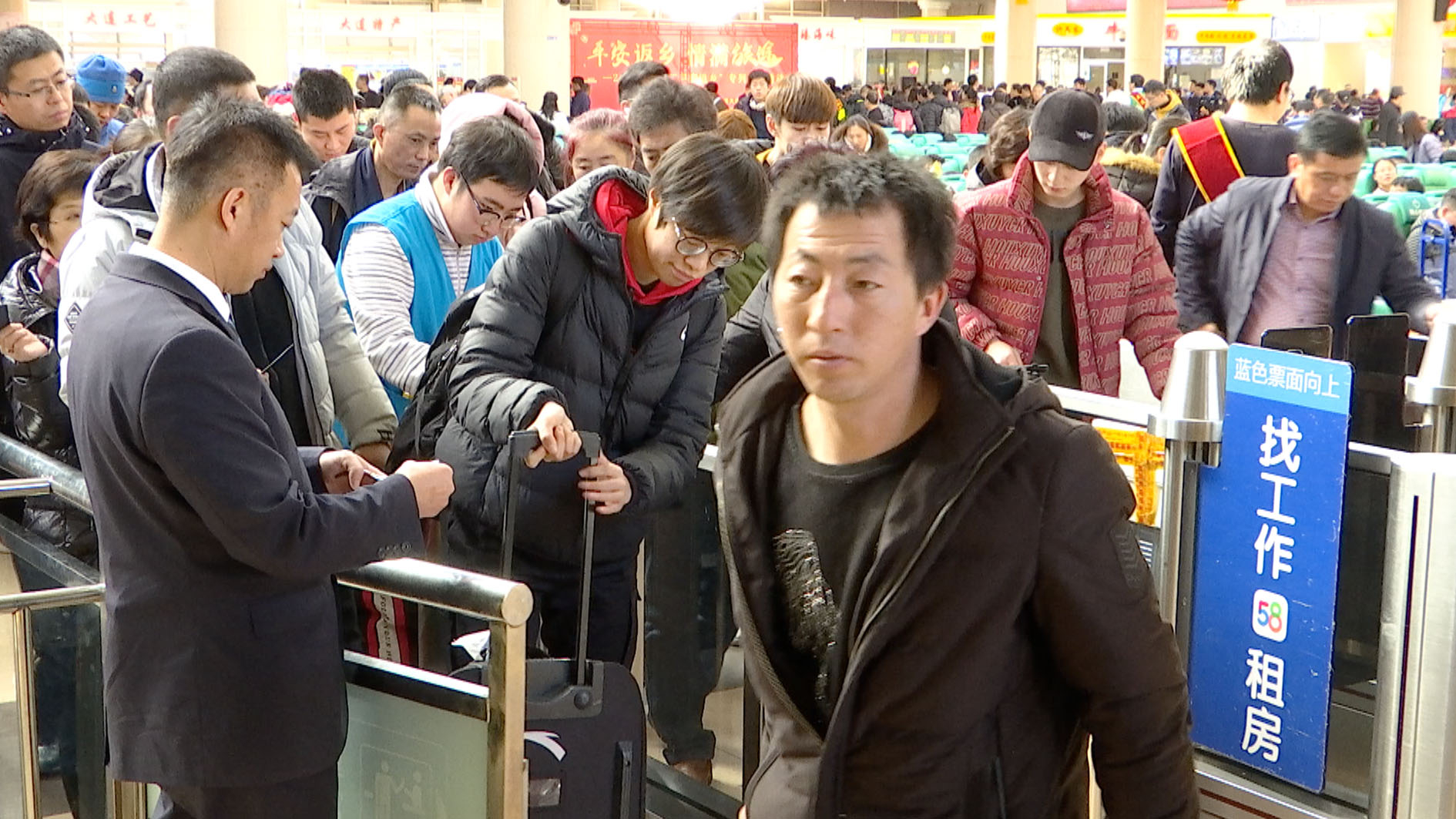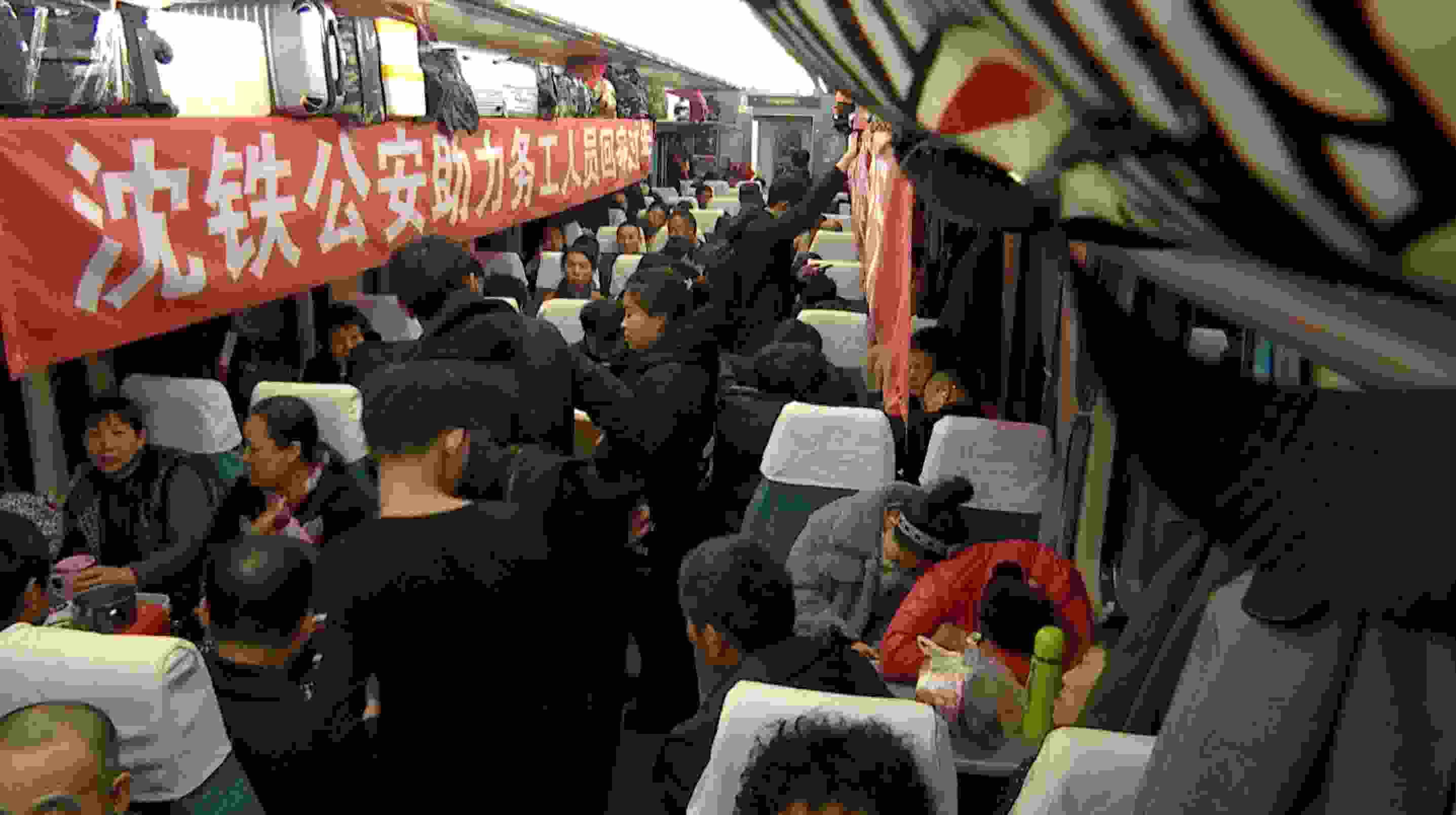
Culture China
16:48, 29-Jan-2019
On the go with home-bound migrant workers
Updated
19:08, 29-Jan-2019
By Xu Xinchen, Wang Yao, Liu Youzhi
02:23

Monday marks Xiaonian 2019, the day when people truly begin their Chinese New Year preparations.
We boarded a special train from Dalian Railway Station towards north China's Jiamusi in Heilongjiang Province. The train was added during the Spring Festival travel rush to accommodate migrant workers going home.
Monday's train is the first of 38 trains specially added during this year's travel rush. For 13 years, the Dalian Railway Station has added this special train. However, this year, the station is quieter.
Railway authorities told CGTN that over 1,000 people were on the first train last year. This year, barely 900 people boarded the train.

City's railway station provide entertainment for passengers. /CGTN Photo
City's railway station provide entertainment for passengers. /CGTN Photo
Instability pushes migrant workers re-think
29-year-old Cao Chenglong came to Dalian when he was only 18. He was working in a cloth factory but he has decided to go back to where he was born – taking his wife and child along. He said that it is easier to send his seven-year-old son to school in his hometown since they do not have a hukou in Dalian. Hukou is China's registration system for residents. Without a hukou, migrant workers are excluded from the city's social benefits.
“For those with a stable job and stable income, they can stay. But some of us migrant workers are not as stable,” said Cao.
Can also said when he first came to Dalian 10 years ago, he was working in a factory of 500 workers but now these big factories are disappearing — only much smaller ones with fewer than 100 people exist now. Dalian's economy grew 6.5 percent in 2018. It's still the leader in the region, but that growth is only one third what it was back in 2007.
Cao has decided not to come back to Dalian after the Spring Festival, at least for now.

Inside the train's coach. /CGTN Photo
Inside the train's coach. /CGTN Photo
Many still chase their dreams
At the back of the train a family of five spoke to us about their staying in Dalian. Zhou Guibin and Xie Zhongmei were practicing Chinese medicine in their hometown of Suihua in Heilongjiang Province where temperatures are much colder and the sluggish economy is primarily driven by agriculture.They and their two adolescent children came to Dalian six years ago.
“It was extremely hard at the beginning,” said the wife, Xie Zhongmei. Gradually, they were able to adapt to the busier lifestyle in Dalian. They're now running a small clinic in city with a stable stream of clients, and they had another daughter — now only two and half years old. This year is their first trip as a family back to their hometown for the Chinese New Year, but they'll return to the city after the break.
The train is loaded with people like Zhou and Xie –migrant workers who have moved to Dalian to find a better life.
“During the past 13 years, the biggest difference I noticed is the make-up of the passengers. When we first started to add trains for migrant workers back in 2007, most passengers were young people – single and eager, but now many are traveling as a family,” said Liu Yongjin, the deputy chief for Dalian Railway Station's Passenger Service.

SITEMAP
Copyright © 2018 CGTN. Beijing ICP prepared NO.16065310-3
Copyright © 2018 CGTN. Beijing ICP prepared NO.16065310-3